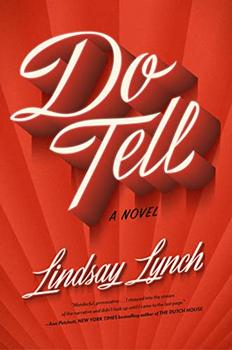Book Club Discussion Questions
Please be aware that this discussion guide will contain spoilers!
- What was your impression of the golden age of Hollywood before reading Do Tell? How did the novel change the way you thought about the studio system and the actors, directors, publicists, and writers that made up its ecosystem? What did you get right?
- Edie says she built her career by focusing on "the things actors won't say" (p 3). What do you think is the most valuable secret she picks up on over the course of the novel? How does covert observation play into your life, relationships, and work?
- Edie and Charles discuss their working-class backgrounds in contrast to their current circumstances as Hollywood actors. How do you think Edie's childhood shapes her adult outlook? How does her experience of scarcity differ from Seb's?
- Sophie's assault trial is one of the major plot threads in Part One of Do Tell. What did you think Edie's responsibility was to Sophie when asked to help get Sophie's story into print? If you were Edie, would you have told Augustan about your involvement sooner?
- Edie chooses to print the story about Charles rather than her findings about Margy's marriage during Freddy's trial—based on what Edie knew at the time, would you have made the same choice in her shoes? Were there questions you wished she'd asked that she didn't?
- World War II complicates studio operations in Part Two. How does Do Tell's treatment of the American war effort differ from other stories you've read set in this period? What's your take on the way the studio system played a role in wartime propaganda, and how those changes affected the characters in the novel? How do you think you might have participated in the Hollywood war effort?
- Throughout the novel, we see that Edie's words, and the words of her fellow actors, have power. When does gossip work in these characters' favor? Is it always pernicious? Are gossip columns inherently dangerous? Why did studios like FWM opt into relationships with writers like Edie?
- Characters in Do Tell go unpunished. How did that make you feel? Were there elements of the conclusion that surprised you? In a perfect world, how would you see justice served?
- Edie calls Hollywood "a city that promised reshoots" (p 271). Where in your life do you wish you could try again? She also calls Los Angeles "a city that no one was supposed to be from" (p 205). How does self-invention play into LA's role in the novel?
- Though Do Tell is historical fiction, Sophie's trial and its outcome feel timely given recent news events and social movements. How do you think Sophie's allegations might have been received had she gone to trial today? Do you think public opinion and the jury's outcome could be different? Why or why not?
- How do you think the film industry has changed since the 1930s and 40s? Do you feel movies are made differently now than they were then? Do you think the current trends in cinema are positive? Is there anything from the past that you'd like to see brought back for today's new releases?
- What films, tv shows, or novels did Do Tell most remind you of? Did Edie's story make you want to revisit any of those stories to compare and contrast? Who would you cast in a film adaptation?
Unless otherwise stated, this discussion guide is reprinted with the permission of Doubleday. Any page references refer to a USA edition of the book, usually the trade paperback version, and may vary in other editions.




